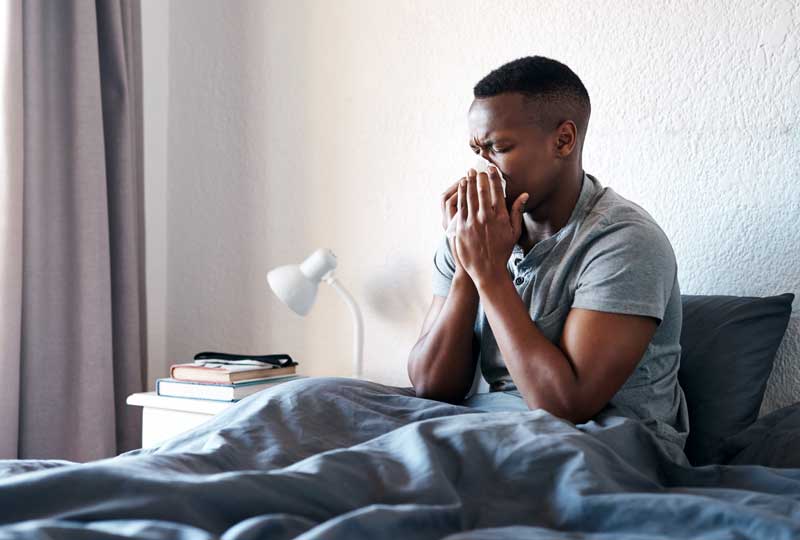Sinus infections can be painful and make you feel miserable. Here’s how to find relief, and when to consider seeing your doctor.
Sinus infections happen when fluid builds up in the sinuses, little air-filled pockets in the face, which allows germs to settle and grow there. Most sinus infections are caused by viruses, but bacteria can also be a cause.
You are at higher risk of getting a sinus infection if you just had a cold, you suffer from seasonal allergies, you smoke or are exposed to second-hand smoke. Other factors that can contribute to a sinus infection include structural problems within the sinuses, such as growths known as nasal polyps on the lining of the nose or sinuses, or a weakened immune system.
Signs and symptoms of a sinus infection
Common symptoms of sinus infections include:
- Runny nose
- Stuffy nose
- Facial pain or pressure
- Headache
- Mucus dripping down the throat (post-nasal drip)
- Sore throat
- Cough
- Bad breath
When you have a sinus infection, one or more of your sinuses becomes inflamed and fluid builds up, causing congestion and runny nose. Antibiotics are not needed for many sinus infections, and most resolve on their own. Your health care provider can decide if you need an antibiotic by asking about symptoms and doing a physical examination.
How to find relief from sinus infection pain
To relieve sinus pain and pressure, try putting a warm compress over the nose and forehead. Use a decongestant or saline nasal spray or breathe in steam from a bowl of hot water or a shower. Ask your healthcare provider or pharmacist about over-the-counter medicines that can also help you feel better.
Nurse practitioner Cynthia Wasden, MSN, treats patients with sinusitis at the Vanderbilt Asthma, Sinus and Allergy Program within the Vanderbilt Lung Institute. She explains that the best way to prevent sinusitis is to use a nasal steroid such as Flonase every day. Also, she recommends using a sinus rinse as needed to soothe and moisturize the nasal passages.
When to see a doctor for your sinus infection
Get medical attention if you have a severe headache or facial pain, symptoms that get worse after initially improving, symptoms lasting more than 10 days without improvement or a fever for more than three days. If you have been plagued with multiple sinus infections in the past year, you should also see your health care provider.
The Centers for Disease Control and Prevention reminds us that doing our best to stay healthy is one way to lower the risk of developing a sinus infection. Always use good handwashing practices, get recommended vaccines such as the flu and COVID-19 vaccines, avoid close contact with people who have upper respiratory infections, don’t smoke or expose yourself to secondhand smoke and use a clean humidifier to moisten the air at home.

Need help?
Allergies, asthma and sinus problems can produce similar symptoms, ranging from annoying to life-threatening. Vanderbilt Asthma, Sinus and Allergy experts in the Vanderbilt Lung Institute provide an accurate diagnosis and treatment tailored to individual patients, their symptoms and their lives.

